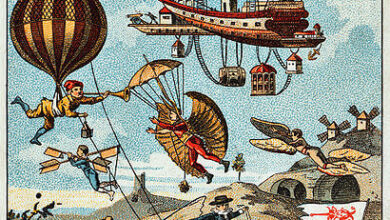
Clara Barton’s Public Address, 1881 by Clara Barton
Clara Barton made a heartfelt plea to the President, Congress, and the American people to ratify the Treaty of Geneva and support the American Red Cross in her 1881 public address. Excerpted from Barton’s book, The Red Cross in Peace and War (1898).
The following public address, written in 1881, is inserted because of its historical character, showing as it does, quite as well as anything that could now be written, the general apathy in America concerning the treaty, and the many obstacles that had to be overcome by years of struggle and weary waiting.
ADDRESS BY CLARA BARTON. To the President, Congress, and People of the United States:
A brief statement of how I became acquainted with the Red Cross may serve to explain at once its principles and methods, as well as the present attitude of our government in regard to it.
The practical beneficence of the sanitary and Christian commissions of the United States attracted the attention of the civilized world. I had borne some part in the operations of field hospitals in actual service in the battles of the Civil War, and some public notice had been taken of that work. But, broken in health, I was directed by my physicians to go to Europe prepared to remain three years.
In September, 1869, I arrived at Geneva, Switzerland. In October I was visited by the president and members of the “International Committee for the relief of the wounded in war.” They wished to learn if possible why the United States had declined to sign the treaty. Our position was incomprehensible to them. If the treaty had originated with a monarchial government they could see some ground for hesitancy. But it originated in a Republic older than our own. To what did America object, and how could these objections be overcome? They had twice formally presented it to the government at Washington, once in 1864, through our Minister Plenipotentiary at Berne, who was present at the convention; again in 1868, through Rev. Dr. Henry W. Bellows, the great head of war relief in America. They had failed in both instances. No satisfactory nor adequate reason had ever been given by the nation for the course pursued. They had thought the people of America, with their grand sanitary record, would be the first to appreciate and accept it. I listened in silent wonder to all this recital, and when I did reply it was to say that I had never in America heard of the Convention of Geneva nor of the treaty, and was sure that as a country America did not know she had declined; that she would be the last to withhold recognition of a humane movement; that it had doubtless been referred to and declined by some one department of the government, or some one official, and had never been submitted to the people; and as its literature was in languages foreign to our English-speaking population, it had no way of reaching us.
You will naturally infer that I examined it. I became all the time more deeply impressed with the wisdom of its principles, the good practical sense of its details, and its extreme usefulness in practice. Humane intelligence had devised its provisions and peculiarly adapted it to win popular favor. The absurdity of our own position in relation to it was simply marvelous. As I counted up its roll of twenty-two nations—not a civilized people in the world but ourselves missing, and saw Greece, Spain, and Turkey there, I began to fear that in the eyes of the “rest of mankind” we could not be far from barbarians. This reflection did not furnish a stimulating food for national pride. I grew more and more ashamed. But the winter wore on as winters do with invalids abroad. The summer found me at Berne in quest of strength among its mountain views and baths.
On the fifteenth of July, 1870, France declared war against Prussia. Within three days a band of agents from the “International Committee of Geneva,” headed by Dr. Louis Appia (one of the prime movers of the convention), equipped for work and en route for the seat of war, stood at the door of my villa inviting me to go with them and take such part as I had taken in our own war. I had not strength to trust for that, and declined with thanks, promising to follow in my own time and way, and I did follow within a week. No shot had then been fired—no man had fallen—yet this organized, powerful commission was on its way, with its skilled agents, ready to receive, direct and dispense the charities and accumulations which the generous sympathies of twenty-two nations, if applied to, might place at its disposal. These men had treaty power to go directly on to any field, and work unmolested in full co-operation with the military and commanders-in-chief; their supplies held sacred and their efforts recognized and seconded in every direction by either belligerent army. Not a man could lie uncared for nor unfed. I thought of the Peninsula in McClellan’s campaign—of Pittsburg Landing, Cedar Mountain and second Bull Run, Antietam, Old Fredericksburg with its acres of snow-covered and gun-covered glacee, and its fourth-day flag of truce; of its dead, and starving wounded, frozen to the ground, and our commissions and their supplies in Washington, with no effective organization to go beyond; of the Petersburg mine, with its four thousand dead and wounded and no flag of truce, the wounded broiling in a July sun—died and rotted where they fell. I remembered our prisons, crowded with starving men whom all the powers and pities of the world could not reach even with a bit of bread. I thought of the widows’ weeds still fresh and dark through all the land, north and south, from the pine to the palm; the shadows on the hearths and hearts over all my country. Sore, broken hearts, ruined, desolate homes! Was this people to decline a humanity in war? Was this a country to reject a treaty for the help of wounded soldiers? Were these the women and men to stand aloof and consider? I believed if these people knew that the last cloud of war had forever passed from their horizon, the tender, painful, deathless memories of what had been would bring them in with a force no power could resist. They needed only to know.
As I journeyed on and saw the work of these Red Cross societies in the field, accomplishing in four months under their systematic organization what we failed to accomplish in four years without it—no mistakes, no needless suffering, no starving, no lack of care, no waste, no confusion, but order, plenty, cleanliness and comfort wherever that little flag made its way—a whole continent marshaled under the banner of the Red Cross—as I saw all this, and joined and worked in it, you will not wonder that I said to myself “If I live to return to my country I will try to make my people understand the Red Cross and that treaty.” But I did more than resolve, I promised other nations I would do it, and other reasons pressed me to remember my promise. The Franco-Prussian war and the war of the commune were both enormous in the extent of their operations and in the suffering of individuals. This great modern international impulse of charity went out everywhere to meet and alleviate its miseries. The small, poor countries gave of their poverty and the rich nations poured out abundantly of their vast resources. The contributions of those under the Red Cross went quietly, promptly through international responsible channels, were thoughtfully and carefully distributed through well-known agents, returns, accurate to a franc, were made and duly published to the credit of the contributing nations, and the object aimed at was accomplished.
America, filled with German and French people, with people humane and universal in their instincts of citizenship and brotherhood, freighted ships with supplies and contributions in money prodigal and vast. They arrived in Europe, but they were not under the treaty regulations. No sign of the Red Cross authorized any one to receive and distribute them. The poor baffled agents, honest, well meaning and indefatigable, did all that individuals without system or organization could do. But for the most part the magnificent charity of America was misapplied and went as unsystematized charity always tends to go, to ruin and to utter waste. The object aimed at was not accomplished. At the end of the report of the international organization of the Red Cross occurs something like this: “It is said that the United States of America also contributed something for the sick and wounded, but what, or how much, or to whom, or when or where, it is impossible to tell.”
In the autumn of 1873, I returned to America more broken in health than when I left in 1869. Then followed years of suffering in which I forgot how to walk, but I remembered my resolve and my promise. After almost five years I was able to go to Washington with a letter from Monsieur Moynier, president of the International Committee of Geneva, to the President of the United States, asking once more that our government accede to the articles of the convention. Having been made the official bearer of this letter, I presented it in 1877 to President Hayes, who received it kindly, referring it to his Secretary of State, Mr. Evarts, who in his turn referred it to his assistant secretary as the person who would know all about it, examine and report for decision. I then saw how it was made to depend not alone upon one department, but one man, who had been the assistant secretary of state in 1864 and also in 1868, when the treaty had been on the two previous occasions presented to our government. It was a settled thing. There was nothing to hope for from that administration. The matter had been officially referred and would be decided accordingly. It would be declined because it had been declined. If I pressed it to a decision, it would only weigh it down with a third refusal. I waited. My next thought was to refer it to Congress. That step would be irregular, and discourteous to the administration. I did not like to take it, still I attempted it, but could not get it considered, for it promised neither political influence, patronage, nor votes.
The next year I returned to Washington to try Congress again. I published a little pamphlet of two leaves addressed to the members and senators, to be laid upon their desks in the hope they would take the trouble to read so little as that, and be by so much the better prepared to consider and act upon a bill if I could get one before them. My strength failed before I could get that bill presented, and I went home again in midwinter. There then remained but a portion of the term of that administration, and I determined, if possible, to outlive it, hoping another would be more responsive. Meanwhile I wrote, talked, and did whatever I could to spread the idea among the people, and March, 1881, when the administration of President Garfield came in, I went again to Washington. The subject was very cordially received by the President and carefully referred by him to Secretary Blaine, who considered it himself, conferred fully with me, and finally laid it before the President and the cabinet. Perhaps the most satisfactory account of that transaction will be found in the letter of Mr. Blaine addressed to me, (see page 41), which gives the assurance that President Garfield would recommend the adoption of the treaty in his message to Congress.
What were the provisions of that treaty which had been so conspicuously and persistently neglected and apparently rejected by this whole government, whose people are as humane as any people in the world, and as ready to adopt plain and common sense provisions against evils sure to come upon themselves and those whom they hold most dear? It was merely the proposed adoption of a treaty by this government with other nations for the purpose of ameliorating the conditions incident to warfare, humanizing its regulations, softening its barbarities, and so far as possible, lessening the sufferings of the wounded and sick who fall by it. This treaty consists of a code of ten articles, formed and adopted by the International Convention of Geneva, Switzerland, held August 22, 1864, which convention was composed of delegates, two or more from each of the civilized nations of the world, and was called at the instance of the members of the Society of Public Utility of Switzerland.
The sittings of the convention occupied four days, and resulted, as before stated, in a code of ten articles, to be taken by the delegates there present, back to the governments of their respective countries for ratification. Four months were allowed for consideration and decision by the governments, and all acceding within that time were held as having signed at the convention. At the close of this period, it was found that twelve nations had endorsed the terms of the treaty and signed its articles. The protocol was left open for such as should follow. The articles of this treaty provide, as its first and most important feature, for the entire and strict neutrality of all material and supplies contributed by any nation for the use of the sick and wounded in war; also that persons engaged in the distribution of them, shall not be subject to capture; that all hospitals, general or field, shall be neutral, respected and protected by all belligerents; that all persons comprising the medical service, surgeons, chaplains, superintendents, shall be neutral, continuing their work after the occupation of a field or post the same as before, and when no longer needed be free to retire; that they may send a representative to their own headquarters if needful; that field hospitals shall retain their own equipments; that inhabitants of a country who entertain and care for the wounded of either side, in their houses, shall be protected; that the generals of an army shall so inform the people; that commanders-in-chief shall have the power to deliver immediately to the outposts of the enemy soldiers who have been wounded in an engagement, both parties consenting to the same; that the wounded, incapable of serving, shall be returned when healed; that all transports of wounded and all evacuations of posts or towns shall be protected by absolute neutrality. That the sick and wounded shall be entertained regardless of nationality; and that commanders-in-chief shall act in accordance with the instructions of their respective governments, and in conformity to the treaty. In order that all may understand, and no mistake be possible, it also provides that one uniform international flag shall mark all hospitals, all posts of sick and wounded, and one uniform badge or sign shall mark all hospital material, and be worn by all persons properly engaged in the hospital service of any nation included within the treaty; that this international flag and sign shall be a red cross on a white ground, and that the nations within the compact shall not cease their endeavors until every other nation capable of making war shall have signed this treaty, and thus acceded to the general principles of humanity in warfare recognized by other peoples.
Thirty-one governments have already signed this treaty, thirty-one nations are in this humane compact. The United States of America is not in it, and the work to which your attention is called, and which has occupied me for the last several years, is to induce her to place herself there.
This is what the Red Cross means, not an order of knighthood, not a commandery, not a secret society, not a society at all by itself, but the powerful, peaceful sign and the reducing to practical usefulness of one of the broadest and most needed humanities the world has ever known.
These articles, it will be observed, constitute at once a treaty governing our relations with foreign nations, and additional articles of war governing the conduct of our military forces in the field. As a treaty under the constitution, the President and Senate are competent to deal with them; as additional articles of war, Congress must sanction and adopt them before they can become effective and binding upon the government and the people. For this reason I have appealed to Congress as well as to the Executive Department.
On the breaking up of the original convention at Geneva, the practical work of organizing its principles into form and making them understood and adopted by the people, devolved upon seven men, mainly those who had been instrumental in calling it. These men were peculiarly fitted for this work by special training, enlarged views, and a comprehensive charity, no less than by practical insight, knowledge of the facts and needs of the situation, and a brave trust in the humane instincts of human nature. They are known to-day the world over as “The International Committee of Geneva for the relief of the sick and wounded in war.” This committee is international, and is the one medium through which all nations within the treaty transact business and carry on correspondence.
The first act of each nation subsequent to the treaty has been to establish a central society of its own, which of course is national, and which has general charge and direction of the work of its own country. Under these comes the establishment of local societies. It will be perceived that their system, aside from its international feature, is very nearly what our own war relief societies would have been had they retained permanent organizations. Indeed, it is believed that we furnished for their admirable system some very valuable ideas. The success of the Red Cross associations consists in their making their societies permanent, holding their organizations firm and intact, guarding their supplies, saving their property from waste, destruction and pillage, and making the persons in charge of the gifts of the people as strictly responsible for straightforward conduct and honest returns, as they would be for the personal property of an individual, a business firm, or a bank.
In attempting to present to the people of this country the plan of the Red Cross societies, it is proper to explain that originally and as operating in other countries they recognize only the miseries arising from war. Their humanities, although immense, are confined to this war centre. The treaty does not cover more than this, but the resolutions for the establishment of societies under the treaty, permit them to organize in accordance with the spirit and needs of their nationalities. By our geographical position and isolation we are far less liable to the disturbances of war than the nations of Europe, which are so frequently called upon that they do well to keep in readiness for the exigencies of war alone. But no country is more liable than our own to great overmastering calamities, various, widespread and terrible. Seldom a year passes that the nation from sea to sea is not, by the shock of some sudden, unforeseen disaster, brought to utter consternation, and stands shivering like a ship in a gale, powerless, horrified, and despairing. Plagues, cholera, fires, flood, famine, all bear upon us with terrible force. Like war these events are entirely out of the common course of woes and necessities. Like death they are sure to come in some form and at some time, and like it no mortal knows where, how or when.
What have we in readiness to meet these emergencies save the good heart of our people and their impulsive, generous gifts? Certainly no organized system for collection, reception nor distribution; no agents, nurses nor material, and, worst of all, no funds; nowhere any resources in reserve for use in such an hour of peril and national woe; every movement crude, confused and unsystematized, every thing as unprepared as if we had never known a calamity before and had no reason to expect one again.
Meanwhile the suffering victims wait! True, in the shock we bestow most generously, lavishly even. Men “on Change” plunge their hands into their pockets and throw their gold to strangers, who may have neither preparation nor fitness for the work they undertake, and often no guaranty for honesty. Women, in the terror and excitement of the moment and in their eagerness to aid, beg in the streets and rush into fairs, working day and night, to the neglect of other duties in the present, and at the peril of all health in the future—often an enormous outlay for very meagre returns. Thus our gifts fall far short of their best, being hastily bestowed, irresponsibly received and wastefully applied. We should not, even if to some degree we might, depend upon our ordinary charitable and church societies to meet these great catastrophes; they are always overtaxed. Our communities abound in charitable societies, but each has its specific object to which its resources are and must be applied; consequently they cannot be relied upon for prompt and abundant aid in a great and sudden emergency. This must necessarily be the case with all societies which organize to work for a specific charity. And this is as it should be; it is enough that they do constantly bestow.
Charity bears an open palm, to give is her mission. But I have never classed these Red Cross societies with charities, I have rather considered them as a wise national provision which seeks to garner and store up something against an hour of sudden need. In all our land we have not one organization of this nature and which acts upon the system of conserved resources. Our people have been more wise and thoughtful in the establishment of means for preventing and arresting the destruction of property than the destruction of human life and the lessening of consequent suffering. They have provided and maintain at an immense cost, in the aggregate, a system of fire departments with their expensive buildings and apparatus, with their fine horses and strong men kept constantly in readiness to dash to the rescue at the first dread clang of the fire bell. Still, while the electric current may flash upon us at any moment its ill tidings of some great human distress, we have no means of relief in readiness such as these Red Cross societies would furnish.
I beg you will not feel that in the presentation of this plan of action I seek to add to the labors of the people. On the contrary, I am striving to lessen them by making previous, calm preparation do away with the strain and confusion of unexpected necessities and haste. I am providing not weariness, but rest.
And, again, I would not be understood as suggesting the raising of more moneys for charitable purposes; rather I am trying to save the people’s means, to economize their charities, to make their gifts do more by the prevention of needless waste and extravagance. If I thought that the formation of these societies would add a burden to our people I would be the last to advocate it. I would not, however, yield the fact of the treaty. For patriotism, for national honor, I would stand by that at all cost. My first and greatest endeavor has been to wipe from the scroll of my country’s fame the stain of imputed lack of common humanity, to take her out of the roll of barbarism. I said that in 1869 there were twenty-two nations in the compact. There are now thirty-one, for since that date have been added Roumania, Persia, San Salvador, Montenegro, Servia, Bolivia, Chili, Argentine Republic and Peru. If the United States of America is fortunate and diligent she may, perhaps, come to stand No. 32 in the roll of civilization and humanity. If not, she will remain where she at present stands, among the barbarians and the heathen.
In considering this condition of things it seemed desirable to so extend the original design of the Red Cross societies operating in other lands as to include not only suffering by war, but by pestilence, famine, fires or floods—in short, any unlooked-for calamity so great as to place it beyond the means of ordinary local charity, and which by public opinion would be pronounced a national calamity; but that this addition should in no way impair the original functions of the society, and that for their own well being they should be held firm by the distinguishing feature of the international constitution, which provides that local societies shall not act except upon orders from the National Association, which is charged with the duty of being so fully informed upon all such subjects, both at home and abroad, as to constitute it the most competent judge of the magnitude and gravity of any catastrophe.
During all these years no societies under the true banner of the Red Cross of Geneva were or could be organized, for the government had not yet ratified the treaty and no department of the government had then intimated that it ever would be ratified. It could not be a responsible or quite an honest movement on my part to proceed to the formation of societies to act under and in conformity to a treaty of special character so long as our government recognized no such treaty and I could get no assurance that it ever would or indeed could recognize it.
But this delay in the formation of societies, however embarrassing, was in no manner able to interfere with the general plan, or the working details for its operations, which had been arranged and decided upon before the presentation of the subject to the government in 1877, and published in pamphlet form in 1878, making it to cover, as it now does, the entire field of national relief for great national woes and calamities in time of peace, no less than in war. The wise provisions, careful preparations and thorough system which had been found so efficient in the permanent societies of the Red Cross in other countries, could not fail, I thought, to constitute both a useful and powerful system of relief in any class of disasters. I therefore ventured so far upon the generous spirit of their original resolutions in the plan of our societies as, mechanically speaking, to attach to this vast motor power the extra and hitherto dead weight of our great national calamities, in order that the same force should apply to all and serve to lighten I hoped, so far as possible, not only the woes of those directly called to suffer, but the burdens on the hearts and hands of those called to sympathize with their sufferings.
The time allowed for the practical test of this experiment has been short. Scarcely three months in which to organize and act, but the brave societies of the Red Cross of western New York, at this moment standing so nobly among their flame-stricken neighbors of Michigan— so generously responding to their calls for help, are quite sufficient I believe to show what the action and results of this combined system will be when recognized and inaugurated.
It may be said that this treaty jeopardizes our traditional policy, which jealously guards against entangling alliances abroad; that as we are exempt by our geographical position from occasions for war this treaty must bring us not benefits but only burdens from other people’s calamities and wars—calamities and wars which we do not create and of which we may properly reap the incidental advantages. But this treaty binds none to bear burdens, but only to refrain from cruelties; it binds not to give but to allow others to give wisely and to work humanely if they will, while all shall guarantee to them undisturbed activity in deeds of charity. There is then in the Red Cross no “entangling alliance” that any but a barbarian at war can feel as a restraint. This inculcated wariness of foreign influences, wonderfully freshened by the conduct of foreign rulers and writers during the rebellion and deepened by the crimes and the craft directed primarily at Mexico and ultimately at us, made the people of America in 1864 and 1868 devoutly thankful for the friendly and stormy sea that rolled between them and the European states. And it is not perhaps altogether strange that American statesmen, inspired by such a public opinion, should then have been but little inclined to look with favor upon any new international obligations however specious in appearance or humane in fact. But the award of Geneva surely opened the way for the Red Cross of Geneva. Time and success have made plain the nation’s path. The postal treaty since made among all nations and entered into heartily by this has proved salutary to all. It has removed every valid state reason for opposition to the harmless, humane and peaceful provisions of the treaty of the Red Cross.
But in the midst of the rugged facts of war come sentimental objections and objectors. For, deplore it as we may, war is the great fact of all history and its most pitiable feature is not after all so much the great numbers slain, wounded and captured in battle, as their cruel after treatment as wounded and prisoners, no adequate provision being made for their necessities, no humane care even permitted, except at the risk of death or imprisonment as spies, of those moved by wise pity or a simple religious zeal.
Among these hard facts appears a conscientious theorist and asks, Is not war a great sin and wrong? Ought we to provide for it, to make it easy, to lessen its horrors, to mitigate its sufferings? Shall we not in this way encourage rulers and peoples to engage in war for slight and fancied grievances?
We provide for the victims of the great wrong and sin of intemperance. These are for the most part voluntary victims, each in a measure the arbiter of his own fate. The soldier has generally no part, no voice, in creating the war in which he fights. He simply obeys as he must his superiors and the laws of his country. Yes, it is a great wrong and sin, and for that reason I would provide not only for, but against it.
But here comes the speculative theorist! Isn’t it encouraging a bad principle; wouldn’t it be better to do away with all war? Wouldn’t peace societies be better? Oh, yes, my friend, as much better as the millennium would be better than this, but it is not here. Hard facts are here; war is here; war is the outgrowth, indicator and relic of barbarism. Civilization alone will do away with it, and scarcely a quarter of the earth is yet civilized, and that quarter not beyond the possibilities of war. It is a long step yet to permanent peace. We cannot cross a stream until we reach it. The sober truth is, we are called to deal with facts, not theories; we must practice if we would teach. And be assured, my friends, there is not a peace society on the face of the earth to-day, nor ever will be, so potent, so effectual against war as the Red Cross of Geneva.
The sooner the world learns that the halo of glory which surrounds a field of battle and its tortured, thirsting, starving, pain-racked, dying victims exists only in imagination; that it is all sentiment, delusion, falsehood, given for effect; that soldiers do not die painless deaths; that the sum of all human agony finds its equivalent on the battlefield, in the hospital, by the weary wayside and in the prison; that, deck it as you will, it is agony; the sooner and more thoroughly the people of the earth are brought to realize and appreciate these facts, the more slow and considerate they will be about rushing into hasty and needless wars, and the less popular war will become.
Death by the bullet painless! What did this nation do during eighty agonizing and memorable days but to watch the effects of one bullet wound? Was it painless? Painless either to the victim or the nation? Though canopied by a fortitude, patience, faith and courage scarce exceeded in the annals of history, still was it agony. And when in his delirious dreams the dying President murmured, “The great heart of the nation will not let the soldier die,” I prayed God to hasten the time when every wounded soldier would be sustained by this sweet assurance; that in the combined sympathies, wisdom, enlightenment and power of the nations, he should indeed feel that the great heart of the people would not let the soldier die.
Friends, was it accident, or was it providence which made it one of the last acts of James A. Garfield in health to pledge himself to urge upon the representatives of his people in Congress assembled, this great national step for the relief and care of wounded men? Living or dying it was his act and his wish, and no member in that honored, considerate and humane body but will feel himself in some manner holden to see it carried out.




